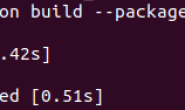This snippet allows one to implement an equivalent of a __getattr__() function in a python module. The module can then define its own way to lazily import abitrary symbols. For example the module can contain infinitely many names or load values from other modules on demand.
There are many implementations of lazy imports in python, this is a simple one which doesn’t interfere with python‘s import mechanism.
#!/usr/bin/env python
# -*-coding: utf8-*-
# Title: lazynames.py
# Author: Gribouillis for the python forum at www.daniweb.com
# Created: 2012-09-25 12:20:15.556784 (isoformat date)
# License: Public Domain
# Use this code freely.
""" module: lazynames -
Usage:
This module allows a python module to import symbols lazily
by declaring a "name getter function" like module A below:
# module A
import lazynames
@lazynames.set_getter(__name__):
def func(module, attribute):
return attribute.upper()
The client module B below imports symbols from A which
are not defined in A
# module B
from A import foo, bar, baz
print(foo, bar, baz) # prints FOO BAR BAZ
When foo, bar, baz are imported, module A uses its
"name getter function" to create values for these names.
Optionaly, the values can be stored in module A, so that
they would be created only once:
@lazynames.set_getter(__name__)
def func(module, attribute):
value = attribute.upper()
setattr(module, attribute, value)
return value
The following operations are possible:
lazynames.set_getter("my.mod")(func)
Sets a name getter function for the module named "my.mod".
Module my.mod must already exist in sys.modules for this
to work.
This can be used more than once for the same module.
lazynames.set_getter("my.mod") can also be used as a
function decorator as shown above.
The "name getter function" can be called __getattr__ as
it behaves like a __getattr__ function: an expression
like my.mod.foo calls the name getter function with
argument "foo" if the name "foo" does not already exist
in module my.mod. The name getter function should raise
AttributeError to indicate that it can not create a value
for a given name.
By default, set_getter won't set a name getter for the
__main__ module, unless a special flag is passed:
lazynames.set_getter("__main__", allow_main = True)(func)
This means that if the example module A above is used
as a script instead of being imported, the name getter
won't be set.
lazynames.get_getter("my.mod")
returns the current name getter function of module my.mod
if it has been defined, otherwise return None
"""
from collections import namedtuple
from functools import partial
import sys
all = ["get_getter", "set_getter", "LazyModule"]
Record = namedtuple("Record", "module getter")
REGISTERED = dict()
class LazyModule(object):
def __init__(self, dict):
self.__dict__ = dict
def __getattr__(self, attr):
record = REGISTERED[self.__name__]
try:
return getattr(record.module, attr)
except AttributeError:
if attr.startswith("__"):
raise
else:
return record.getter(self, attr)
def get_getter(name):
return REGISTERED[name].getter if name in REGISTERED else None
def set_getter(name, allow_main = False):
return partial(_register, name = name, allow_main = allow_main)
def _register(getter_func, name = "__main__", allow_main = False):
if getter_func is None:
_unregister(name)
elif allow_main or name != "__main__":
mod = (REGISTERED[name].module if name in REGISTERED
else sys.modules[name])
record = Record(module = mod, getter = getter_func)
REGISTERED[name] = record
sys.modules[name] = LazyModule(mod.__dict__)
return getter_func
def _unregister(name):
try:
record = REGISTERED.pop(name)
except KeyError:
pass
else:
sys.modules[name] = record.module




